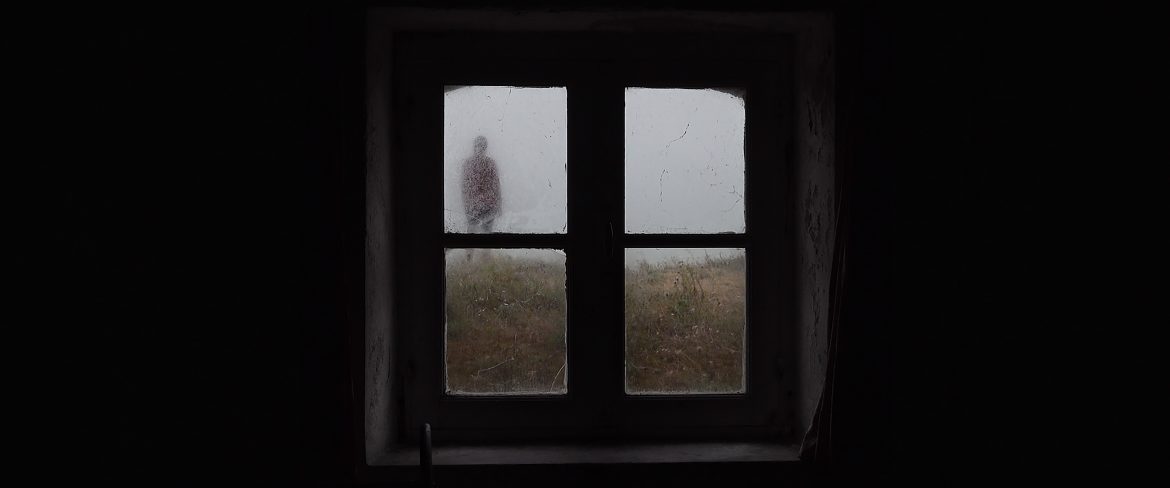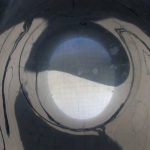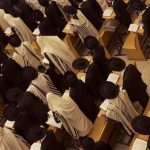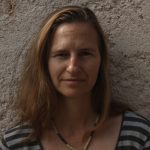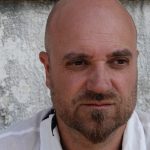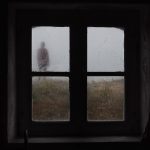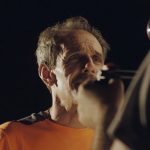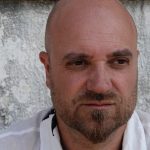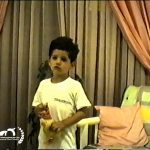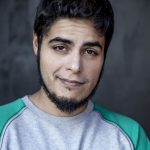Nayra Sanz Fuentes, Shira Ukrainitz and Omar Al Albdul Razzak, Octavio Guerra and Elisa Torres, Claudia Torres and David Sainz present a short-film collection that, in one way or another, brings up the need of assessing ourselves collectively and personally
The directors stress the Festival’s ability to cover a whole generation of local filmmakers
Las Palmas de Gran Canaria, Friday 9 April 2021.- We watch as a society. In our family environment. In personal, extreme situations. Canarias Cinema’s Second Short Film Session within the 20th Las Palmas de Gran Canaria International Film Festival proposes a varied exercise of self-inspection to the audience. Either in dystopic or intimate situations, or on the extreme of survival: Nayra Sanz Fuentes, Shira Ukrainitz and Omar Al Albdul Razzak, Octavio Guerra and Elisa Torres, Claudia Torres and David Sainz make up a screening collection showing this coincidence, but also their personal signatures. Talent with Canarian accent, within their audience’s reach.
Selfie
- Selfie
- Nayra Sanz
Selfie (2019) is the third title in the series of short films undertaken by Nayra Sanz Fuentes under the common denominator “Reached Dystopias”. A project she began with Sub Terrae (2017) and En esas tierras (2017), which she later continued with Derivas (2020) and a fifth title still in the making. The author’s intention has been to “get close to open spaces, usually public, in which, through allegorical and metaphorical language, sound and picture’s symbols make us reflect on contemporary issues”. A sound projected in fact by machines of our surroundings, which we have not necessarily controlled in the way we would’ve liked.
Sanz achieves her goal screening “the tension among nature, man and machine. From there we see how, depending on that tension, a given society or another arises. In Selfie, in particular”, she points out, “I’m interested in that complex technological reflection in which at a certain point we realize we stop ruling over machines”.
That is, pure dystopian spirit, in which we can appreciate very specific influences. “I want the audience to project their experiences onto the picture I offer them and to consider a series of questions”, she says. And, indeed, “both Huxley and Kubrick, with his space odyssey, are present: they resonate within those spectators who know their works”. And she goes deeper on Selfie, “Meca’s Kaaba, the building around which they gather, is one of those iconic sites that have that strange nature” which the author intends to capture in her short films.
In this in particular, she plays with irony: because Selfie is exactly that, a collective self-portrait of our society, that looks to itself. Sanz’s work is divided into two parts: “into a first part with more earthly shots and that strange mix between nature and technology, with sound making you doubt whose speaking, if a human or a machine. Then we jump to other kind of pictures which lay out what we understand as religion, or the game suggesting that robotics is our world’s new religion. We look at ourselves from beneath and from above”.
The filmmaker (also screenwriter, editor and producer) has had a decent run within the circuit. In regards to Las Palmas de Gran Canaria, its festival “it’s a complete landmark in my career: it’s a space in which I’ve been able to show all my works, but it has also given me the opportunity of meeting some colleagues who have later become friends”. Besides, it has allowed her to observe how “in the past ten years the coming generation has been fundamental. It’s great that this year there are 18 short films and ten features: that speaks a lot about how strong is our local cinema”.
Confined Spaces
- Shira Ukrainitz and Omar Al Albdul Razzak
- Confined Spaces
Shira Ukrainitz and Omar Al Albdul Razzak sign Confined Spaces (2019). A couple of filmmakers who bring to this conceptual and documentary work, a mix of real pictures and animation, their vision about their own cultural environments. Illustrator, of Jewish origin, and a documentary maker, of Muslim origin, they pour their talent into a singular piece, in which collective prayers of the Talmud at an Israeli university or around La Meca itself are projected as a perfect choreography that turns later into an animated and always-changing picture. A free-flowing pace, always liquid, which the pair of filmmakers achieves from their short film’s first minute, which starts with the censorship exercised by Iranian television on pictures of athletes in the Olympics.
Omar Al Albdul Razzak notes that “the funny thing, so to speak, is that I can enter those places but Shira can’t, because they are for men only. The confined spaces thing has to do with that, and with those same spaces, which seem open, but are also closed. The universe of religion has that duality. In the end, even if you want out, you are always in, those universes don’t allow you that”.
The short film includes shots taken by Omar himself in Israel (at Bnei Brak) and film archives of La Meca. “In this fragment you feel like if they stop going around in circles, the world comes to a stop. What motivated them to approach such a topic? “Well, we were talking a lot about revolution, that’s why we ended the short film with a picture alluding to constructivism. But we were also interested in that compulsive disorder you can see in those places of prayer, those patterns that, somehow, help you to find meaning in life. That thing about whether we don’t do this or that something may happen. That idea of continuity is there”. The short film is free-flowing, “liquid, that comes more from Shira and her animation”, stresses the author.
With Confined Spaces Omar returns to Las Palmas de Gran Canaria International Film Festival. He had already participated with the feature Paradiso (2013). As a producer he premiered in the Gran-Canarian capital the short film Todo un futuro juntos (2014, Pablo Remón), “because I thought it was great Festival”, he points out. “I find it at an artistic level as one of the best festivals in Spain. When I repeated with the documentary film La Tempestad Calmada (2016), I could also see the local atmosphere. And I think Canarias Cinema is really good».
Heurtebise
- Elisa Torres
- Octavio Guerra
- Heurtebise
Octavio Guerra is a regular of Las Palmas de Gran Canaria International Film Festival, which has shown some of his works since 2013. In 2019 he generated expectation with his feature En busca del Oscar (2018), a singular documentary film that successfully appeared in different festivals, including this one. Today he divides his time between Valencia and the Canary Islands, to where he comes back with two short films in Canarias Cinema.
In Heurtebise (2020), made also by Elisa Torres, “the main idea was to show through a house the cycle of life and death in the same family. We wanted to tell the different roles of three women from the point of view of a matriarchal society”. The result is a balanced visual and documental work, compressed after four years in the making, and with its own pace.
“There’s a commitment to the visual, with almost no dialogue”, points out Guerra. “We wanted to depict a family’s summer and how time and life go by, that’s why it was important”. “During the first year”, he says, “we filmed something unique: the relationship between the great-grandmother with the kid. Next thing we needed was to look for the story we wanted to tell. It was a slow process. We perfectly knew how light worked in that house, because we know it very well. We also realized that we wanted to play with light and shadow”.
Certainly, light, composition and time are Heurtebise’s essential elements, which allow it to develop onscreen at a pace that involve the audience in a paused everyday adventure with its own sound universe. “With sound we had the luck of having some people who vastly improved the content. And sound postproduction has been another script in itself”, revealed the filmmaker.
Guerra recalls how for this piece “we’ve discarded footage: 70 days! It seems pretty easy when you watch the short film, but the truth is it required a lot of work”. It also needed some order in the display of three different times within the same family. Always with a leading female role.
Apache
- Apache
- Octavio Guerra
Octavio Guerra also directs Apache (2019), a harsh documentary film about the real impact of care politics on a particular subject, with an unexpected final turn. Something that reinforces this work’s documentary value; namely that “we don’t have a preconceived idea of what we are trying to accomplish”, points out the filmmaker, “time, relationships and observation make us find the topic and the script. When I’m going to film I don’t know what I’m going to do”.
At this point, Guerra “totally identifies with that documentary maker role. I’m a journalist and then I studied cinema and television. I tried to make fiction and then I realized it didn’t match with my personality. Everything I film is attached to reality. It’s true that I can create, but always starting from real material”.
Although in Apache the author didn’t have the same creating opportunity as in other films: it’s a short film belonging to the observational and realist genre. The idea was to portray Jesús (the main character) by putting him in his frame of mind”.
In the final turning point, the man the short film is focused on makes a decision that may surprise the audience. In the content shown onscreen, admits the director, “there is background criticism: very care politics. They don’t give you the fishing rod for you to fish”. In any case, Guerra continues to film Jesús: he will be the main character in his next feature film.
Over time, Octavio Guerra has developed an exceptional way of looking that allows him to assess the Festival itself and its Canarias Cinema section. “More than once we’ve said it: the festival has been fundamental in the making of what we believe a generation of filmmakers we’ve found here. We’ve even formed an association thanks to those meetings. Most people that have appeared in Canarias Cinema are filmmakers who are now showing a very interesting maturity. And they are many. There are some who are currently with their debut films and who will appear in important festivals, for sure. And there are others who have already achieved that. There are also some, as we are, who are here in this section with shorter pieces, and I’m sure it will be one of the most brilliant Canarias Cinema sections ever. I think it could even be at the same level as the international section. We are now collecting the harvest from all these years”.
Versions
- Claudia Torres
- Versions
In contrast to more veteran authors, Claudia Torres debuts in this edition of Canarias Cinema: an author who proposes a personal and brave piece, centered around the evolution of her own father and brother and which reconstructs authentic material preserved for years by her family in VHS tapes. Sounds stolen without warning and audios secretly captured in the same environment complete her Versions (2019): those she was told and the one she discovered herself with these pictures.
“Everything is real”, admits Torres, “it’s my father the one who appears, and what you can hear are audios I recorded in secret. To make this short film I discarded plenty of material, obviously. But there is nothing fictional”. Old and new pictures are shown here in a thoughtful editing. At a certain point, a pact is reached with the older brother, but “my father was fooled throughout the whole process. It had to be like that because, in the end, as it is stated in the short film, in front of the camera everybody makes their best face”.
The idea for Versions “starts from the moment I find some VHS tapes that my family retrieved. And it finishes in my own memory with those pictures: there’s a conflict between what my brother told me and what I discover in my picture”. Torres adds that the project took final shape “when I was in Madrid. It’s funny, but when you get away from it is when you best see the story”.
Her short film reveals intimacy, family history, a personal profile of her own father, who comments onscreen how he is still there, “fighting his other self”. The author’s desire for documenting didn’t stop with the editing: “I filmed when they watched the short film for the first time: and it was therapeutic. My father has changed a lot. It’s highly recommendable to dust old tapes, instead of filming today’s stuff so much”.
Her Project, in the end, has taken her to debut in the Festival. “I’m very excited! I’ve been trying for some time to get in this show: since I first saw the Festival, I knew it wouldn’t be easy, because it’s well-prepared and top-level. Being able to be there”, she finishes, “is great”.
No signal
- David Sainz
- No Signal
No signal (2019) is a lark made during La Palma’s Festivalito by David Sainz. A prestigious web-series author, and a filmmaker with plenty of black humor, which he clearly exploits in this short film starring American Ken Appledorn. “A titan”, according to the director, who depicts the fatal mistake of a hiker in La Palma: a tragedy that includes actors Kike Pérez and Junior. Two characters in a van nobody would like to get on.
In fact, Sainz’s idea was “looking for two people inside a car I wouldn’t get on at first. In the Canary Islands comedy could be more obvious, because of what Kike represents. Junior is also a great actor, he always gets mixed up because of friends. The truth is the short film works pretty well”.
The tale was “a fucked-up story, in a situation that could be no fun at all and in which you suffer a lot”. And that’s precisely why black comedy works.
In regards to the shooting, “we made it for El Festivalito, and when we had the chance to submit it to the Las Palmas de Gran Canaria Film Festival we added a few more minutes and changed a few things. We filmed it close to Santa Cruz, looking for the cloud, which is fog in the short film. Antonio Velázquez and Emilio González did a great job with its cinematography. And there’s a shot taken from a drone, in which Álvaro Beamonte was brilliant”.
Sainz points out that “it’s the second time we are in the Festival, and truth be told, I keep a relatively close relationship to it, I know people who appear in it every year. Its films are independent and risk-taking”. He is a little bit wary about Las Palmas de Gran Canaria’s Festival, to the point of “always finding curious that they select one of my shorts, because I have the feeling that I’m more commercial. But it’s true that I’m closer to larking than to experimenting. Being there is always an honor. That’s the award. And belonging again to Canarias Cinema, which for me is one of the Festival’s most powerful sections”.
Canarias Cinema Short Films: Session 2 is screening at 10 am, and also at 5 pm, in this case with introduction by the filmmakers, on Saturday April 10, at Cinesa El Muelle’s Screen 9. The event is subject to all security measures fighting the spreading of COVID-19, so masks are compulsory and social distances need to be observed at all times during screenings.
Share this Post

